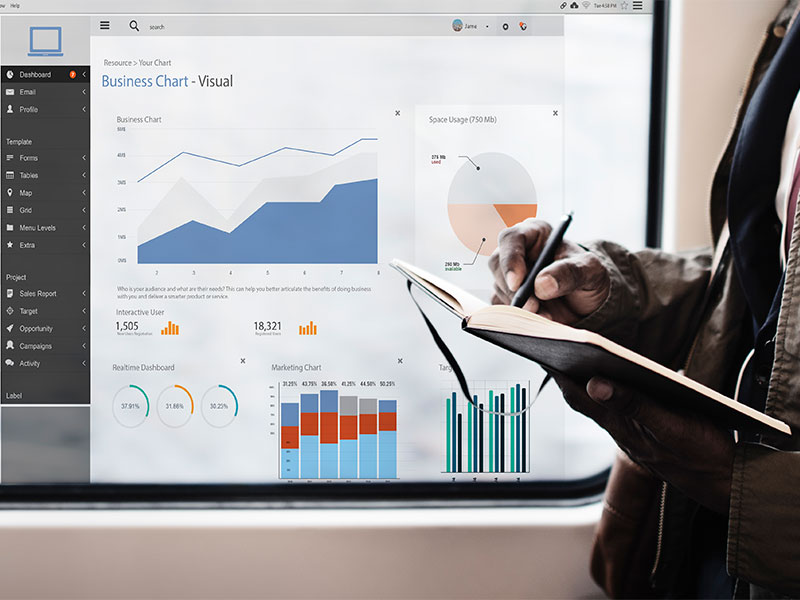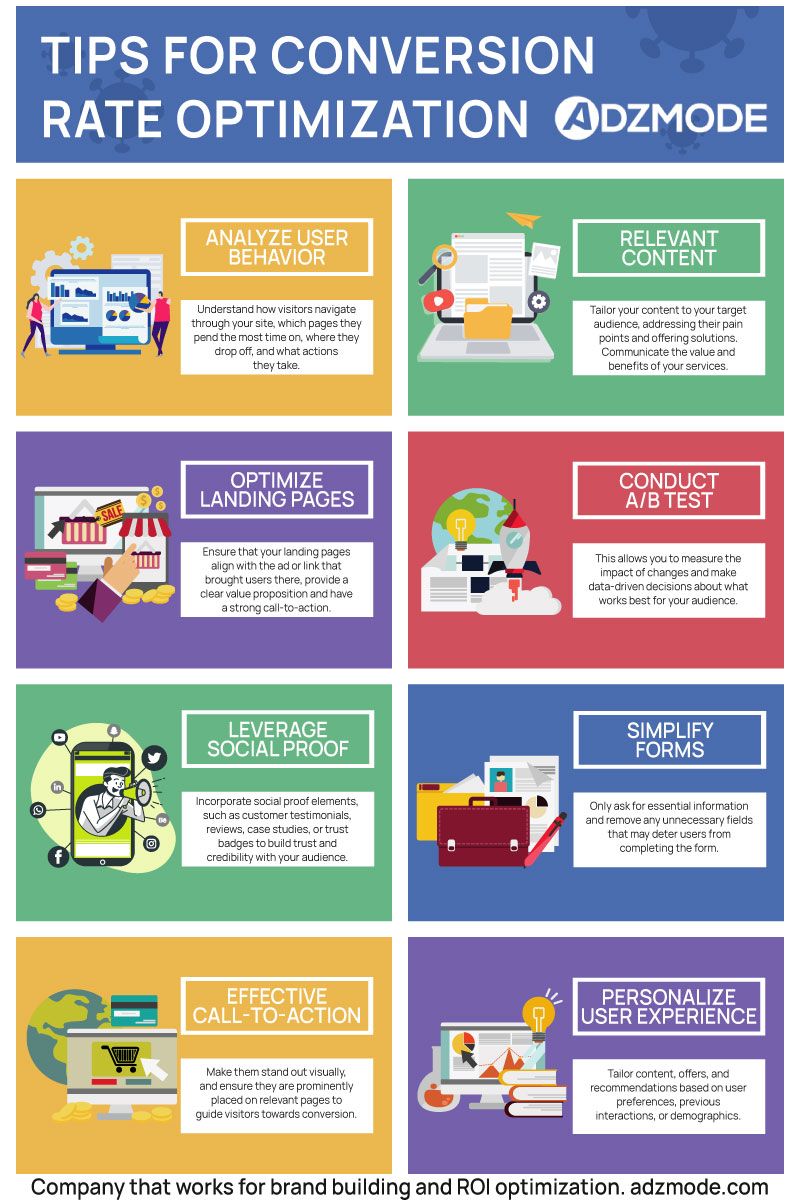
In the digital age, businesses rely heavily on digital marketing strategies to reach their target audience and drive growth. However, implementing effective marketing campaigns is not enough. To maximize their return on investment (ROI) and make informed decisions, businesses must harness the power of analytics to measure the success of their digital marketing efforts. Analytics provides valuable insights into various metrics and key performance indicators (KPIs), enabling marketers to evaluate their strategies, identify areas for improvement, and optimize their campaigns for better results. This article explores the indispensable role of analytics in measuring digital marketing success.
- Defining Analytics in Digital Marketing

Analytics in digital marketing refers to the process of collecting, analyzing, and interpreting data related to marketing activities across various digital channels. These channels may include websites, social media platforms, email marketing, search engine optimization (SEO), pay-per-click (PPC) advertising, and more. Analytics encompasses the measurement and evaluation of a wide range of metrics, such as website traffic, conversion rates, customer engagement, click-through rates, bounce rates, and customer acquisition costs. By tracking and analyzing these metrics, businesses gain valuable insights into their digital marketing performance, enabling them to make data-driven decisions and refine their strategies for optimal results.
Analytics tools, such as Google Analytics, provide businesses with a comprehensive view of their digital marketing efforts. These tools allow marketers to track and monitor key metrics in real-time, providing them with accurate and up-to-date information on their campaigns’ performance. With this data, marketers can assess the effectiveness of their marketing activities, identify trends, and uncover areas for improvement.
Visit: artificial intelligence in marketing
- Tracking Key Performance Indicators
![]()
To effectively measure digital marketing success, businesses must define and track relevant KPIs. KPIs are quantifiable metrics that align with the organization’s goals and reflect its performance in specific areas. Common KPIs in digital marketing include website traffic, conversion rates, customer lifetime value (CLV), return on ad spend (ROAS), customer acquisition cost (CAC), email open rates, social media engagement, and more. Analytics tools provide comprehensive data on these metrics, enabling marketers to monitor their performance, identify trends, and gauge the effectiveness of their marketing campaigns.
By tracking KPIs, businesses can evaluate the success of their marketing efforts against predetermined objectives. For example, if the goal is to increase website traffic, analytics can provide data on the number of visitors, traffic sources, and user behavior patterns. This information allows marketers to identify which channels or campaigns are driving the most traffic and make data-driven decisions on where to allocate resources for maximum impact. Our experienced digital marketing services can help in not only help you in tracking your KPIs but also getting best results out of them.

- Understanding Customer Behavior

Analytics plays a crucial role in understanding customer behavior and preferences. By analyzing data from various touchpoints, such as website visits, social media interactions, and email responses, businesses can gain insights into customer preferences, buying patterns, and decision-making processes. Analytics tools can provide demographic information, user journey analysis, and customer segmentation, allowing marketers to tailor their digital marketing strategies to specific customer segments. This deep understanding of customer behavior empowers businesses to deliver personalized experiences, create targeted campaigns, and optimize their marketing efforts based on customer preferences and needs.
For example, analytics can reveal which pages on a website have the highest bounce rates, indicating areas where user experience or content may need improvement. By identifying these pain points, businesses can optimize their website’s design, navigation, and content to enhance the user experience and increase engagement. Furthermore, analytics can help identify the most effective channels for customer acquisition and retention, enabling businesses to allocate resources effectively and focus their efforts on platforms that yield the highest conversions and customer engagement.
- Optimizing Marketing Campaigns

Analytics serves as a powerful tool for optimizing digital marketing campaigns. By tracking and analyzing campaign performance, businesses can identify underperforming areas, experiment with different approaches, and make data-driven adjustments to enhance their outcomes. A/B testing, for instance, allows marketers to compare the effectiveness of different marketing elements, such as ad copy, visuals, landing pages, and calls-to-action. Through analytics, businesses can identify the highest performing elements and optimize their campaigns accordingly.
Furthermore, analytics can help identify the most effective digital marketing channels and allocate resources accordingly. By analyzing the ROI of various channels, businesses can focus their efforts and budget on the platforms that generate the highest returns. This approach enables businesses to maximize their marketing spend and drive more targeted traffic, conversions, and revenue. Being the best digital marketing agency in India, we have a team of digital marketing experts who deliver reports that are based on analytics which provide you best insights on customers.
- Measuring Return on Investment

One of the most significant benefits of analytics in digital marketing is the ability to measure ROI accurately. Analytics tools provide comprehensive data on marketing expenses and revenue generated, allowing businesses to calculate their ROI for each campaign or marketing channel. This information helps businesses understand the effectiveness of their marketing efforts and make informed decisions about future investments. By measuring ROI, businesses can identify areas where they are achieving high returns and areas that need improvement, enabling them to optimize their marketing strategies and allocate resources more effectively.
Visit: digital marketing ROI metrics
Conclusion
In today’s digital landscape, analytics plays a pivotal role in measuring the success of digital marketing efforts. It provides businesses with valuable insights into various metrics and KPIs, enabling them to evaluate their strategies, understand customer behavior, optimize campaigns, and measure ROI accurately. By leveraging analytics tools and harnessing the power of data, businesses can make data-driven decisions, enhance their marketing performance, and achieve their digital marketing objectives. As digital marketing continues to evolve, analytics will remain a critical component in driving success and ensuring businesses stay competitive in the digital realm.
Why Adzmode?
- In the Industry Since 2012
- Data-Driven Decision Making
- Customized Approach
- Holistic Digital Solutions
- Transparent Reporting and Analytics
- Proven Track Record of More than 90% Client Satisfaction
- IIT Delhi Certified Digital Marketers
Share Your Project Requirements With Us






